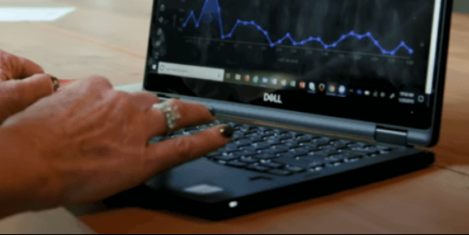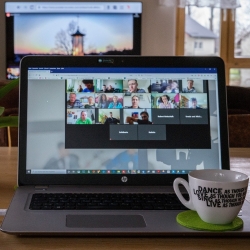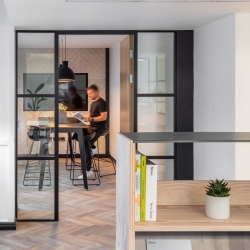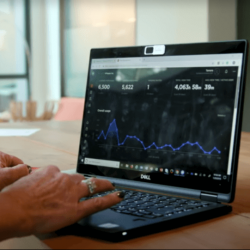To provide the best experiences, we use technologies like cookies to store and/or access device information. Consenting to these technologies will allow us to process data such as browsing behaviour or unique IDs on this site. Not consenting or withdrawing consent, may adversely affect certain features and functions.
The technical storage or access is strictly necessary for the legitimate purpose of enabling the use of a specific service explicitly requested by the subscriber or user, or for the sole purpose of carrying out the transmission of a communication over an electronic communications network.
The technical storage or access is necessary for the legitimate purpose of storing preferences that are not requested by the subscriber or user.
The technical storage or access that is used exclusively for statistical purposes.
The technical storage or access that is used exclusively for anonymous statistical purposes. Without a subpoena, voluntary compliance on the part of your Internet Service Provider, or additional records from a third party, information stored or retrieved for this purpose alone cannot usually be used to identify you.
The technical storage or access is required to create user profiles to send advertising, or to track the user on a website or across several websites for similar marketing purposes.
 A recent report from Culture Shift, claims that almost all (91 percent) of employees across the UK say that knowing their employer takes bullying and harassment complaints seriously is an important factor to their overall happiness at work. One-quarter (25 percent) say their employer could improve its culture and be more inclusive by providing a platform to speak out about bullying and harassment. (more…)
A recent report from Culture Shift, claims that almost all (91 percent) of employees across the UK say that knowing their employer takes bullying and harassment complaints seriously is an important factor to their overall happiness at work. One-quarter (25 percent) say their employer could improve its culture and be more inclusive by providing a platform to speak out about bullying and harassment. (more…)





 A new survey by
A new survey by 




 A vast majority of managers (75 percent) faced challenges with employees when working remotely, causing concerns within businesses preparing for the second UK lockdown.
A vast majority of managers (75 percent) faced challenges with employees when working remotely, causing concerns within businesses preparing for the second UK lockdown. 


 Independent property, construction and infrastructure consultancy
Independent property, construction and infrastructure consultancy 
 Workers are feeling compelled to demonstrate presenteeism and availability to employers in the wake of the COVID-19 outbreak, claims a new global study from the
Workers are feeling compelled to demonstrate presenteeism and availability to employers in the wake of the COVID-19 outbreak, claims a new global study from the  According to new research from
According to new research from 
 After a multi-year global consultation, the World Green Building Council (
After a multi-year global consultation, the World Green Building Council (









November 11, 2020
Burnout, stress and disconnection are now our most urgent workplace mental health issues
by Catherine Flynn • Comment, Flexible working, Wellbeing